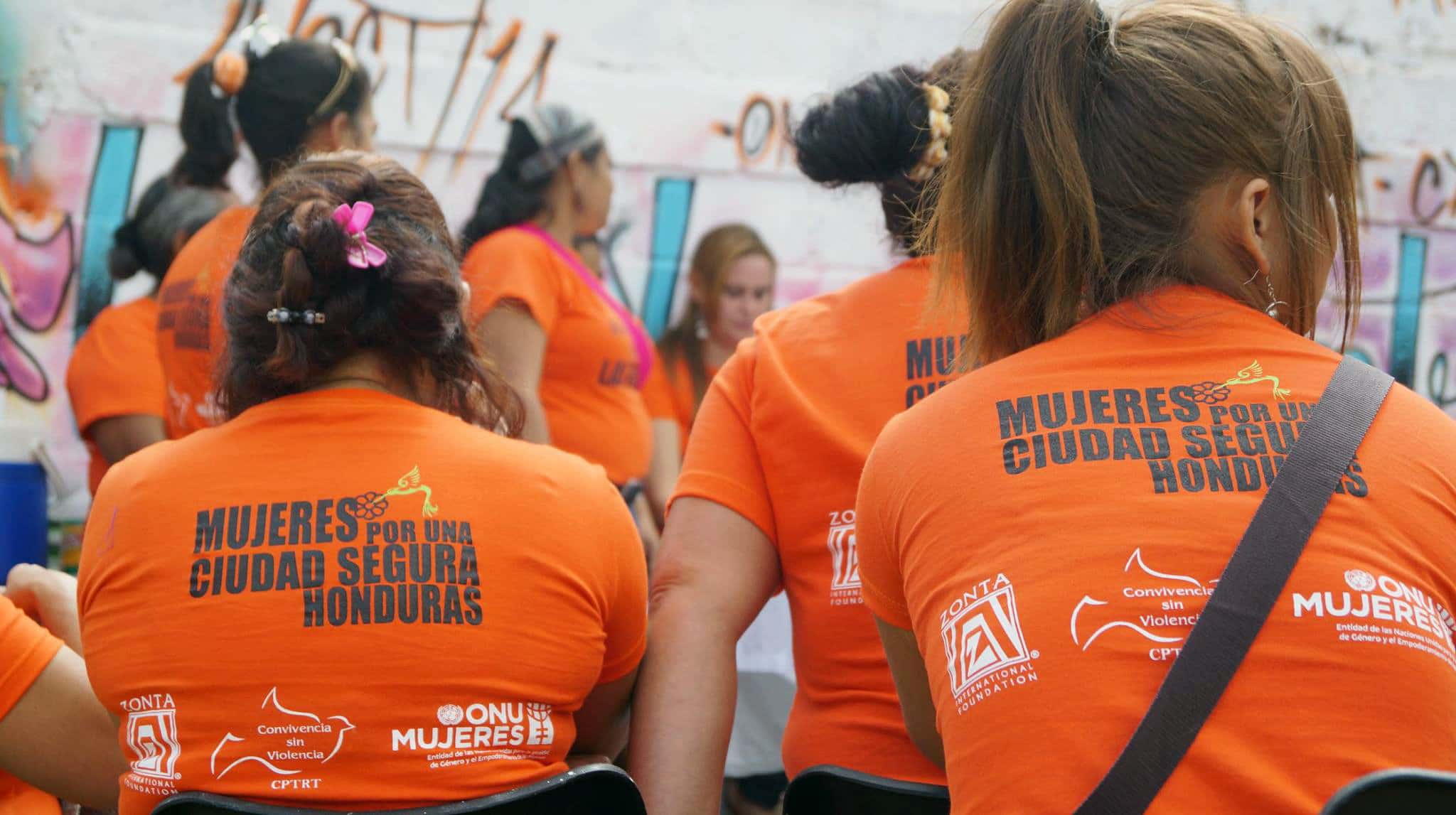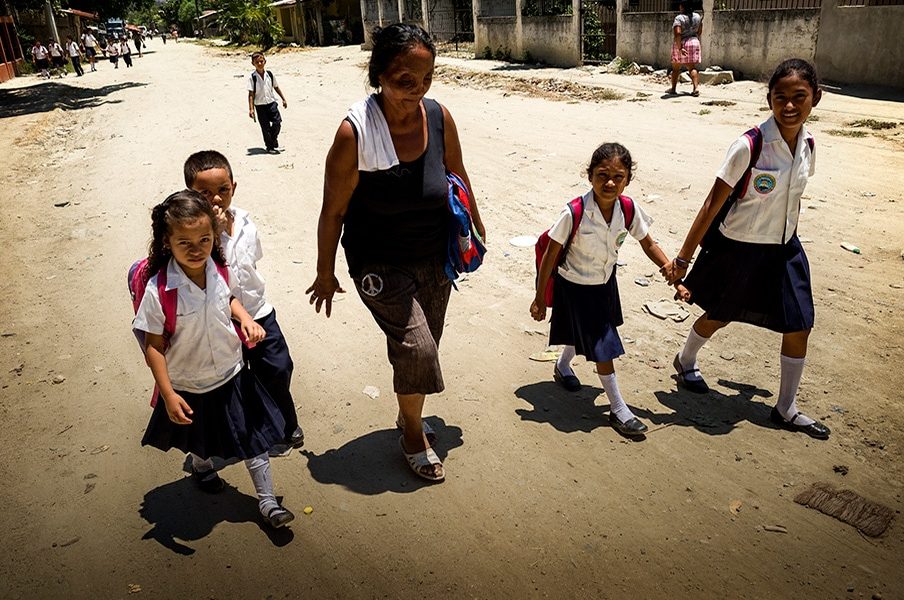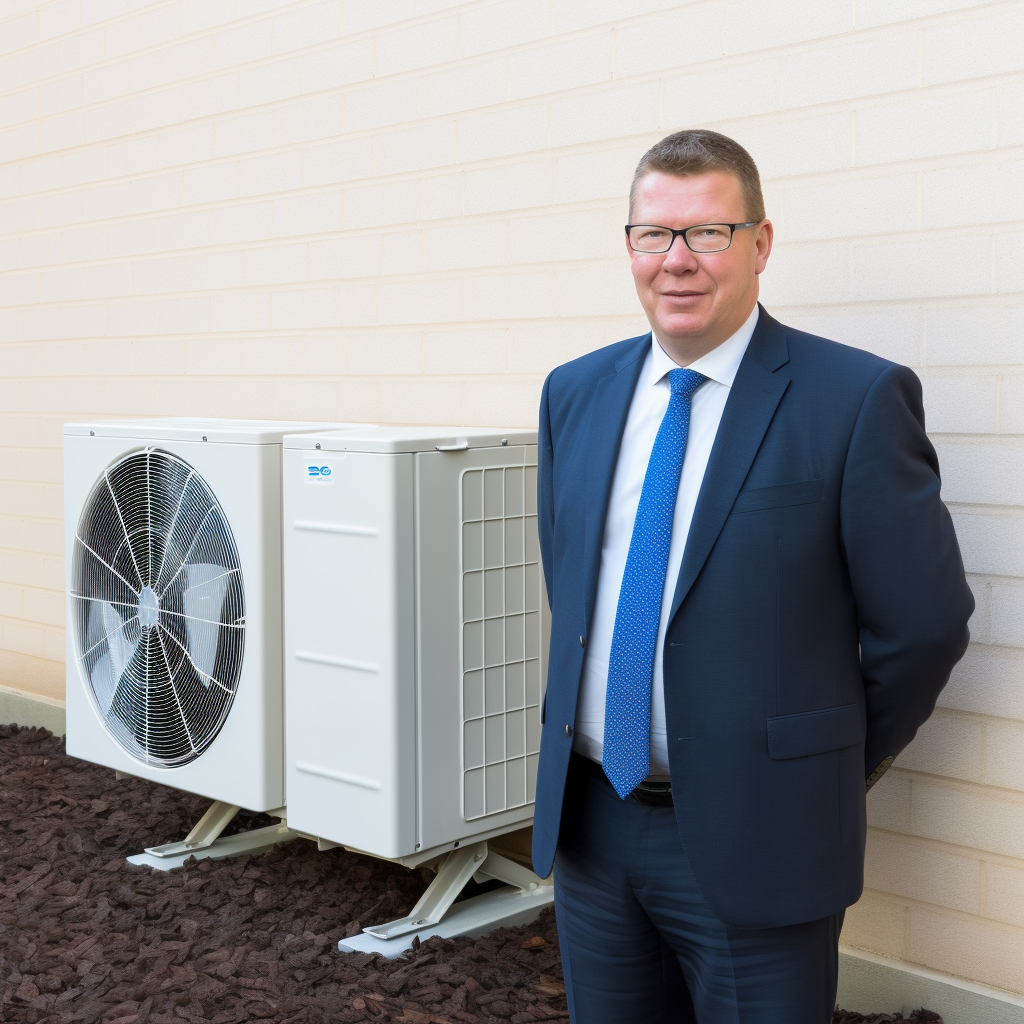Cover photo: Honduras: providing protection and education to children victims of urban violence by EU Civil Protection and Humanitarian Aid
Living in the context of a year-long pandemic has disrupted life for millions around the globe. But even before COVID-19 became an international threat, the lives of millions of women were already disrupted by the pandemic of female-directed violence. Despite Honduras’ small population, the Central American country suffers from the highest rate of femicide worldwide.
Femicide, or feminicide, is defined as the “killing of women and girls because of their gender.” In other words, women’s lives are threatened every day simply for existing as women. In Honduras, 6.2 out of every 100,000 women, one every 36 hours, is killed. This leaves Honduras as the femicide capital of the world.
Latin America’s Deadliest Place to Be a Woman
Last week’s Vice News episode, “Latin America’s Deadliest Place to Be a Woman,’ briefly yet compellingly covers the ongoing pandemic of femicide in Honduras. Through 3 narratives – the father of a femicide victim, a community organizer and a femicide government investigator – individual yet critical perspectives of femicide are established.
The video opens with the father of Ashley Salinas, a 14-year-old girl murdered in Honduras. His reality is suffered far too often by parents across the country, thousands who have lost daughters to extreme acts of male violence. He speaks about the incapacity and inability of the Honduran government to help, where there is no citizen protection given and where impunity runs rampant.
Honduras carries an impunity rate of 95%, meaning that there exists little to no chance of a case ever being thoroughly investigated and a perpetrator convicted in court. Through extreme grief and shock, he states that in Honduras, women die for no reason. A woman can be murdered by gangs, bosses, neighbours, friends, even acquaintances. A partner or husband is responsible for 13.5% of attacks, while 27.4% of attacks are perpetrated by strangers. Government corruption, lack of social support and resources leave women vulnerable to increasing acts of violence, culminating in their murders. Now, it’s left Ashley’s father without his daughter and without justice, as viewers later learn, the investigation into her death was abandoned. “We are doomed to failure,” he says.
The virtual non-existence of a justice system and social safety net in Honduras leaves the responsibility of protecting society’s women to community organizations, such as the featured Mujeres de la Colonia Lopez Arellano y Aldenos (MOMUCLAA). Victims of violence seek rescue, support and resources that the Honduran government does not provide. Volunteers fill the roles of psychologist, doctor, and even body recovery from murder scenes. Melania, a volunteer, describes Honduras as a country without opportunities for those growing up, without options to advance, leaving them with no recourse but to turn to gang and other violent activities to survive.

#orangeyourhood Honduras by UN Women
Long-term economic prosperity and social stability still remain largely contingent on access to education in the 21st century, teachers are murdered and classrooms are invaded by gangs. Lack of internet access, classroom space and teachers themselves have left Honduras with tens of thousands of students dropping out of school each year.
A perpetually weakened economy and lack of formal work opportunities result in a further socioeconomic vulnerability, with 60% of the population in poverty. As noted by Melania, a population left with no other options to advance in life leads them to activities and affiliations filled with risk of violence, exploitation and abuse. A woman’s safety and wellbeing are dependent on that of her surrounding society. Without a stable community and populace, female lives remain under threat.
Femicide – Far from Over
Vice’s final segment introduces a female government femicide investigator. Donaira Haylock highlights male chauvinism as an explicit source of Honduran femicides. In her own femicide unit, she recounts experiencing discrimination and harassment, being told by her male coworkers, “women are the weaker sex.”
Even in the 21st century, women are expected to be housewives and mothers, to remain dependent on any and all male figures in all aspects of life. When women venture outside of the home, away from traditional norms to seek independence in school and work, they face social punishment that escalates to domestic violence. Male chauvinism and machismo remain saturated in Honduras’ historically patriarchal society, rendering acts of violence towards women, from harassment to murder, as normalized, justified and emboldened by a lack of liability. Men can do anything they want to women in Honduras with zero repercussions.
With the eradication of COVID-19 becoming a more tangible reality every day, the virus of violence against women in Honduras continues to mutate, leaving women and girls in a deepening, threatened state of existence. Parents, community leaders, and officials alike remain hopeful for a new and safe Honduras in their lifetime. “We’re here for justice…,” concludes Melania. “And we are all human beings.”
Like what we have to say? Sign up to subscribe to email alerts and you’ll never miss a post.










